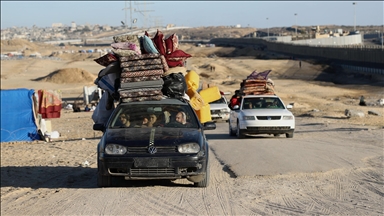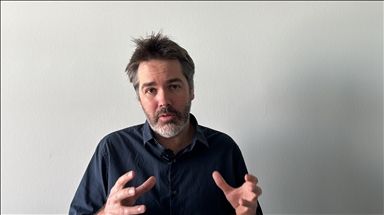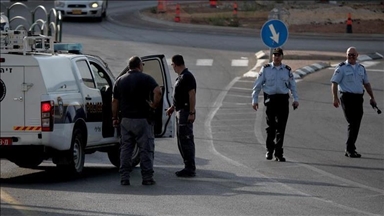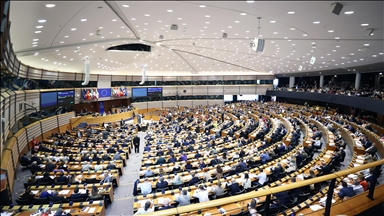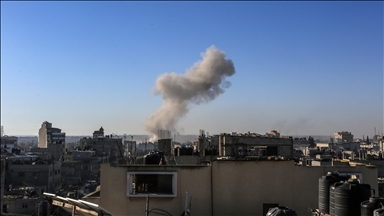
By Abdel-Raouf Arnaout
JERUSALEM
The European Union (EU) is seeking to persuade Israel not to take a series of moves in the occupied West Bank deemed “red lines” by the European body, Israeli daily Haaretz reported, citing an internal EU document.
According to the paper, the European Union believes that crossing any of these "red lines" by Israeli may undermine the possibility of a future Palestinian state alongside Israel, a risk that might draw further European sanctions against Israel.
“The EU considers the preservation of the two state solution a priority,” the document obtained by Haaretz reads.
“The only way to resolve the conflict is through an agreement that ends the occupation which began in 1967, that ends all claims and fulfills the aspirations of both parties. A one state reality would not be compatible with these aspirations.”
According to the paper, the first red line is construction in the Givat Hamatos settlement in southern East Jerusalem. The document said that building in that area would jeopardize the possibility of a contiguous Palestinian state, with Jerusalem as the capital of both states.
The EU “cautions the Israeli government not to move ahead with tenders and construction. Such a development would constitute one more grave 'fact on the ground' which would be liable to crucially prejudge the outcome of peace negotiations,” the document reads, according to Haaretz.
The second is construction in the E1 area between Ma’aleh Adumim settlement in east Jerusalem and West Jerusalem for similar reasons.
The third red line is further construction in the Har Homa settlement in southern Jerusalem, and the fourth is the planned relocation of 12,000 Bedouin without their consent after expelling them from their lands in the West Bank.
The last is harming the status-quo at Al-Aqsa Mosque compound as the EU warned that attempts to challenge the status-quo have led to instability and increased tensions in East Jerusalem.
“The EU strongly urges Israel to put these plans on hold and search for other solutions together with the concerned populations and the Palestinian Authority. The EU underlines that implementing those plans may amount to a serious breach of International Humanitarian Law (IV Geneva Convention),” the document reads.
According to the paper, EU ambassador to Israel Lars Faaborg-Andersen is set to relay the message to Israel in the few coming days.
The roots of the Israel-Palestine conflict date back to 1917, when the British government, in the now-famous "Balfour Declaration," called for "the establishment in Palestine of a national home for the Jewish people."
Israel occupied East Jerusalem and the West Bank during the 1967 Middle East War. It later annexed the holy city in 1980, claiming it as the capital of the self-proclaimed Jewish state – a move never recognized by the international community.
Palestinians, for their part, continue to demand the establishment of an independent state in the Gaza Strip and West Bank, with East Jerusalem – currently occupied by Israel – as its capital.
In recent months, groups of extremist Jewish settlers – usually accompanied by Israeli security forces – have repeatedly forced their way into Al-Aqsa Mosque compound.
For Muslims, Al-Aqsa represents the world's third holiest site. Jews, for their part, refer to the area as the "Temple Mount," claiming it was the site of two prominent Jewish temples in ancient times.
In September 2000, a visit to the site by controversial Israeli politician Ariel Sharon sparked what later
became known as the "Second Intifada," a popular uprising against the Israeli occupation in which thousands of Palestinians were killed.
englishnews@aa.com.tr
Anadolu Agency website contains only a portion of the news stories offered to subscribers in the AA News Broadcasting System (HAS), and in summarized form. Please contact us for subscription options.


